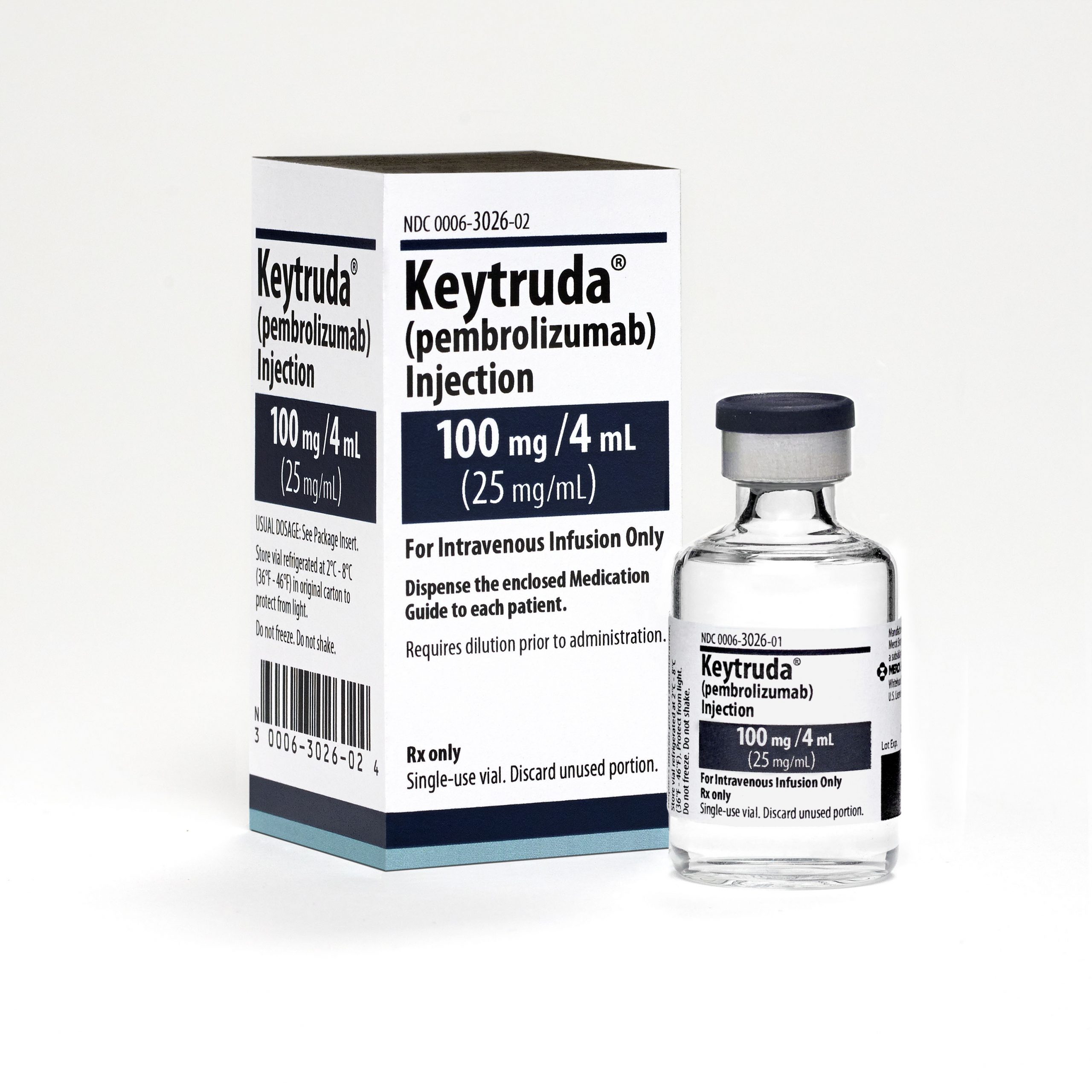Merck & Co boosted by Keytruda first-line lung cancer trial

Merck & Co's Keytruda has met two survival goals in a key first-line lung cancer trial – another victory for the company in the battle for supremacy in the immunotherapy market.
Combining Keytruda with chemotherapy in this setting allows Keytruda to be used across the non-small cell lung cancer population without a test for the presence of the PD-1 biomarker.
Keytruda is already a blockbuster with sales of around $1 billion every quarter, and is rapidly making up ground in terms of sales with rival PD-1 drug Opdivo.
Bristol-Myers Squibb’s drug had the advantage of being first in the class to market, but Opdivo famously failed in a first-line lung-cancer trial in 2016, handing the advantage to Merck. It is now driving home this advantage, even though the immunotherapy field continues to throw up surprisingly results as their reach into new indications and settings broadens.
Roche’s Tecentriq combined with Avastin and chemotherapy produced strong results in non-squamous first-line NSCLC, and these late-stage trial results announced in December could lead to regulatory filings.
Merck is not providing detailed findings, but said the KEYNOTE-189 trial met its two main goals of overall survival and progression-free survival, based on an interim analysis.
The trial was assessing Keytruda in combination with Lilly’s Alimta (pemetrexed) plus platinum chemotherapy of cisplatin or carboplatin in metastatic non-squamous form of the disease, which accounts for around three-quarters of NSCLC cases.
There were no surprises on the safety side, with side-effects consistent with those seen in other trials. Merck will present results from KEYNOTE-189 trial and file them with regulators.
First-line lung cancer is an indication that is worth billions in sales to pharma companies, and Keytruda already has the drug approved in this indication in the US, based on data from a smaller trial.
But the accelerated approval needs further data to ensure Keytruda can be used in this indication in the longer term.
Merck worried investors late last year when it withdrew a European filing for Keytruda in this indication based on phase 2 data from KEYNOTE-021, because the CHMP regulatory committee had not been convinced by its findings.
https://twitter.com/bradloncar/status/953235648688873473
If the data from KEYNOTE-189 is as strong as this announcement suggests, then the drug could also be on course for approval in this coveted indication in Europe.
The news went down well on twitter, with commentators praising Merck for going for the tougher overall survival endpoint.
It also sent Merck’s shares up a few notches, while BMS and Roche shares ticked down.












